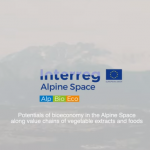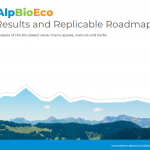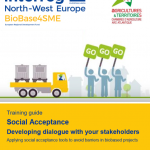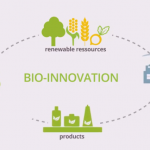Category: New value chains and business models
FERTIMANURE – Innovative nutrient recovery from secondary sources – Production of high-added value FERTIlisers from animal MANURE
Total farm livestock population in Europe excrete around 1400 Mt of manure annually. More than 90% of manure produced is returned to agricultural fields. However, this is not being done in the most efficient and least leaky way. FERTIMANURE will develop, integrate, test and validate innovative Nutrient Management Strategies to efficiently recover mineral nutrients and other products with agronomic value from manure, to finally obtain reliable and safe fertilisers that can compete in the EU fertilizers market. FERTIMANURE focuses on “How to improve the agronomic use of recycled nutrients from livestock manure” to reconnect nutrient flows between plant and livestock production.
Nutrient recycling relies not only in the technologies for producing bio-based fertilisers, but also in a better understanding and managing nutrients at the farm. The ambition of FERTIMANURE is to cover both technological approach for nutrient recovery and nutrient management. To this end, the technological approach will be covered by the implementation of 5 innovative & integrated nutrient recovery on-farm experimental pilots in the most relevant European countries in terms of livestock production (Spain, France, Germany, Belgium, The Netherlands), whereas the nutrient management will be addressed through 3 different strategies adapted to mixed and specialised farming systems: (Strategy #1) On-farm production and use of Bio-Based Fertilisers (BBF), (Strategy #2) On-farm BBF production and Centralised Tailor-Made Fertilisers (TMF) production and (Strategy #3) On-farm TMF production and use.
A total of 31 marketable end-products (11 BBF & 20 TMF) will be obtained. The agronomic & environmental performance and their potential to replace conventional fertilisers will be assessed.
Ultimately, FERTIMANURE seeks to provide an innovative circular economy model to favour rural development in agricultural sector by creating real synergies and links within farmers and other industrial activities.
-
Grant Agreement ID862849
-
Call TopicH2020-EU.3.2.1.1.
H2020-EU.3.2.4.1. -
Project Websitenot available
-
DurationFrom: 2020-01-01To: 2023-12-31
-
Overall Budget8 419 670,75 €
-
CoordinatorFUNDACIO UNIVERSITARIA BALMES
 PROJECT CONTENTS
PROJECT CONTENTS
AlpBioEco presents itself!
The video shows what are doing in the Research & Innovation project AlpBioEco. AlpBioEco is an interdisciplinary project group with 13 partnering institutions from Slovenia, Italy, Austria, France and Germany. Together they are looking for new ways to reate economic value from vegetable products – called bioeconomy. For this purpose, the value chains of walnuts, apples and herbs are examined in terms of their bioeconomic potential. Based on market studies, laboratory analyses and the exchange of knowledge between the various players involved in the project, the project develops new practical eco-innovative business models. These concepts will be tested and further developed through pilot studies in selected Alpine regions.
Results and Replicable Roadmap AlpBioEco – Analysis of the bio-based value-chains apples, walnuts and herbs
Bioeconomy means using natural substances for new and alternative products. The most important oals are to replace fossil resources with renewable materials and to find applications for by-products and waste materials. Synergies of technology, ecology and sustainability are harnessed to create new opportunities and prospects for economic activities. By targeting an economic cycle, the concept of bioeconomy comprises raw material sources of agriculture, forestry, water management and waste (food and feed, materials, energy). The transition from a fossil to a bio-based economy reduces society‘s dependency on fossil fuels and improves sustainability. New business models and cross-industrial innovations are the basis for such transitions. With its raw material sources and diverse economy, the Alpine region has good starting conditions. At this point, the AlpBioEco project comes into place to foster development towards bioeconomy by investigating the valorisation of innovative potentials along bio-based food and botanical extract value chains. In the first work package, AlpBioEco examines the biobased potential of the three value chains apples, walnuts and herbs.
Brochure about Social Acceptance: Developing a dialogue with your stakeholders
Many companies implementing emerging technologies encounter barriers or objections from consumers or local stakeholders. “Social acceptance” is the result of a process where stakeholders and project leaders work together to find solutions to these barriers and objections. It is important to be aware that the stakeholders affected by a new product or process go way beyond the SME’s customer base. Involving stakeholders in a series of activities to establish relationships is essential – there are tools for this. Tools will enable SMEs to achieve legitimacy and credibility regarding the stakeholder, form a strong and well-communicated company mission statement and clear long-term vision and set up long-term connections with their stakeholders, resulting in trust.
This guide takes you through the context and the theory behind the social acceptance concept. It addresses SME managers and business support organisations, presenting a number of tools which can be useful for those launching new products or services in the bio-based economy, and beyond.
The tools can be applied by SME managers in North West Europe, but there are the property of their authors (see references).
BIOECONOMY FACTSHEET EU
This factsheet gives an overview of the European Union’s bioeconomy innovation technology system. It includes the key government interventions, research initiatives, networks and finance instruments, in the EU.
Publishable final report
The Open-Bio project aims at increasing the uptake speed of standards, certification systems, labels and data sheets for bio-based products. Public acceptance of bio-based products is increased through ensuring, verifying and visualizing the sustainable sourcing of raw materials, the effective bio-content, the end-of-life options and clear indication of their (comparative) functionality in relation to the regular products. These positive effects will indirectly result in faster growth of the bio-based product industry and increased share of bio-based in the total use of final (consumer) products and intermediates. The Open-bio project promotes these positive effects by facilitating the development and optimization of standards, (ecological) labels and product information databases.
This Seventh Framework Programme project commenced in November 2013. It is partially a follow-up on a pending pre-normative project (KBBPPS), which had initiated the development of standardised methods to test bio-based products for various properties. The current project took these proposed standards forward and elaborated a number of new ones, considering aspects as diverse as the determination of the total bio-based content of a product, its likely biodegradation in sea water, its compostability and the extent to which it can be recycled. Standardised methods help manufacturers to substantiate their claims about the biobased content and related properties of their products. Several of those proposed by the two successive projects have been submitted to the European Committee for Standardization
(CEN) and the International Standardization Organisation (ISO). Four have been adopted, and several more are being finalised in cooperation with these bodies.
In addition to that, it is important that all properties and applications are clearly communicated to the users of bio-based products. Open-Bio has established guidelines for ecological labelling of and for the product information supplied together with bio-based products. A socio-economical investigation towards bio-based products acceptance in six EU Member States complements the work. In the end, the result is intended to lead to standards and policy rules at European level.
RUBIZMO – Replicable business models for modern rural economies
RUBIZMO will identify business models with high potential for empowering rural communities to take advantage of the opportunities arising from improved value chain optimisation. It will directly supporting the creation of sustainable jobs and growth in rural economies, supporting a multi-actor approach for generation of shared-value. Ultimately, the project looks to contribute to rural development in Europe, supporting the Europe 2020 Strategy for Smart, Sustainable and Inclusive Growth, as well as supporting Regional and Rural Development policy.
To do this, the project will identify innovative business models (developed or identified in existing projects under FP7, H2020, Interreg, Central Europe, etc.) with a significant potential to support modernisation and sustainable growth in rural economies, and relevant to the food sector, bio-based value chains and ecosystem services. Business models with the potential to contribute to the modernisation and sustainable growth of rural economies will be selected, packaged and classified according to their nature, comprising technologies, services, business support structures, financing mechanisms, etc.
This will result in the creation of four practical, user-oriented tools:
– Virtual library of business cases, to inspire and inform potential entrepreneurs about business opportunities;
– Guidelines on creating favourable conditions for the deployment of innovative business models, to help public authorities and rural networks create adequate framework conditions for rural innovation;
– Toolkit for clustering and network development in rural areas;
– Transformation support tool, to help individual entrepreneurs understand which business models are best adapted to their situation, and how to go about implementing change.
The project will then prepare Europe-wide upscaling and replication in rural areas using real life cases, taking account of the complexity of transferring value chains.
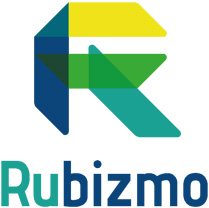
-
Grant Agreement ID773621
-
Call TopicH2020-EU.3.2.1.3.
H2020-EU.3.2.2.3.
H2020-EU.3.2.4.1. -
Project Website
-
DurationFrom: 2018-05-01To: 2021-04-30
-
Overall Budget3 928 852,04 €
-
CoordinatorRISE RESEARCH INSTITUTES OF SWEDEN AB
 PROJECT CONTENTS
PROJECT CONTENTS



